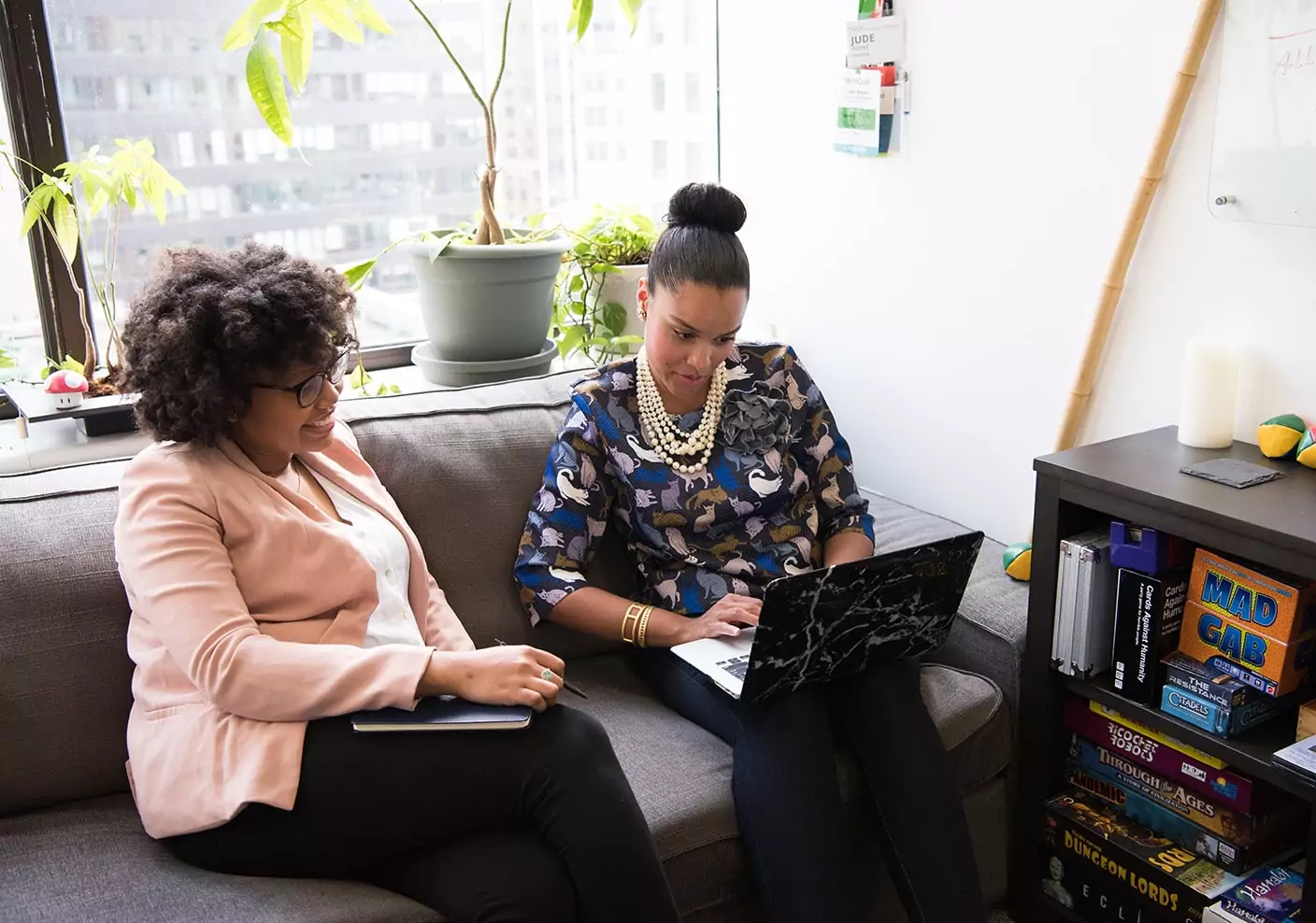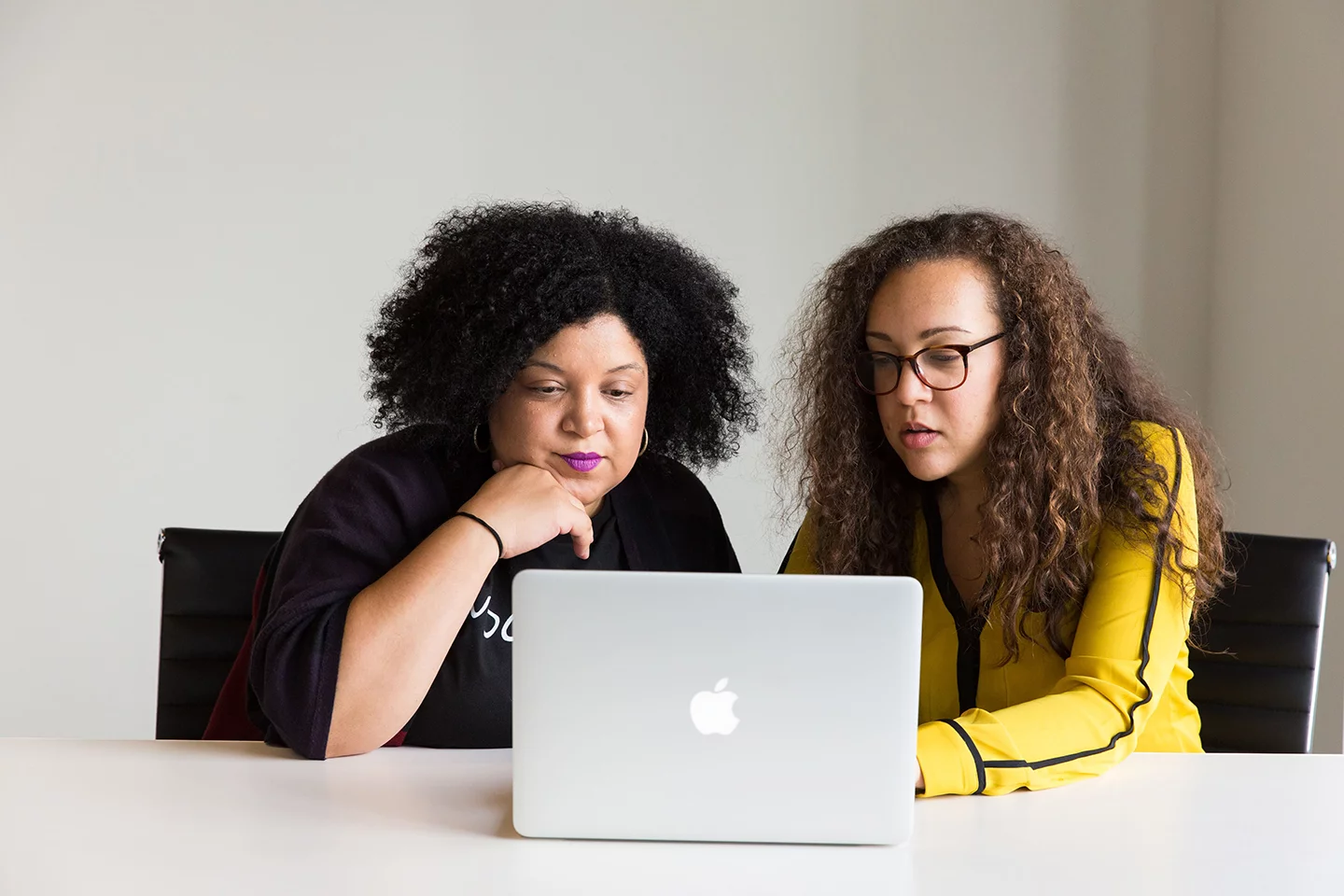We recently continued our Future of Work Roundtable series with a session from Jennifer Moss, an award-winning journalist, author, international public speaker, and nationally syndicated radio columnist. Moss’ first book, Unlocking Happiness at Work, received the distinguished UK Business Book of the Year Award. She was named the Canadian Innovator of the Year and International Female Entrepreneur of the Year and is the recipient of the Public Service Award from the office of President Obama. Moss’ new book, The Burnout Epidemic, will come out next month.
What follows is an excerpt from Moss’ presentation.
Join us for our upcoming Future of Work sessions by signing up here. And, to experience Mursion’s virtual reality simulations and see for yourself how this platform can support your own business to learn how VR can play a role in honing the interpersonal skills needed to foster a culture of coaching, schedule a demo today.
“I will dig right in because I think a lot of us are saying we are ‘whelmed,’ which I liked. Not totally overwhelmed, but just whelmed. Then people feeling overwhelmed, I think a lot of us have felt that way. I’m an expert in burnout and chronic stress and happiness, and yet I’ve had a really challenging year. It’s not easy to write a book about burnout in the middle of a global pandemic. I have to say that it was a challenge, there were a lot of ironic moments.
I like to talk about this as heading towards recovery. However, we are still really in it, there is no right way to feel right now. I like to start by saying that because there’s going to be days where we just really do need to decompress where we feel guilty for needing a day, just snuggle in bed, watching Netflix and that’s okay. There are a lot of us that are ready to get back into the world, but we’re feeling socially anxious or were feeling scared just in general of being out in the world and there’s a lot that’s changed. I want to talk about what that changes look like in the workplace.
Changing the Culture that Contributes to Burnout
One of the things that I think is really important to understand just about us as human beings in that we do love to work. We work a lot in our lifetime. Fifty percent of our waking hours is actually spent at work and yet, researchers have been able to quantify that by 2:39 PM, we’re ready to check out just mentally, we cannot really produce anything more that’s effective or contributing to our goals for the week.
I think that by 2:39 PM every day in COVID, it felt like that we’re pretty drained. And there’s lots of reasons for that which I’m going to explain. This has really been a year like no other and we are burning out all the data that I’ve gathered, what I’ve been shouting from the rooftops for years has been, we are in a dangerous place with burnout. We are working more, chronic overwork is a big problem and yet we’re not addressing it. Then it takes a crisis to exacerbate a situation like we’re in right now.
When you really look back, it wasn’t until 2019, but this was pre-pandemic where the World Health Organization identified burnout as a workplace phenomenon. It’s stress unmanaged at work that we need to really see identified as so problematic that the WHO included burnout in its international classification of diseases. They were trying to make sure that we understood that this is a workplace problem, and it is really based on these six root causes that are not necessarily solved with self-care.
That been the premise of a lot of my writing. The book is really based on where we can get accountability at an organizational level, at a leadership level, and then how we can still show up to work in a way that’s psychologically fit. An ecosystem approach to solving for burnout and not just with more yoga or better breathing or meditation apps, that’s not going to solve for burnout because it starts with these root causes.
Unsustainable workload overwork Chronic overwork is a major issue, has catastrophic effects. It’s responsible for the death of 2.8 million people globally a year. These are real problems that we’re having with this state of chronic overwork.
There are a lot of questions around how that’s going to look in September and in this next quarter, coming up. What does return to work look like? Not having controller agency or flexibility in how we work can make us be at greater risk of burnout. It’s why I have been long advocating for more flexibility around where, when, and how we work and focused on goals versus hours.
Insufficient rewards for efforts Are we being compensated fairly? Are we seeing certain groups not experiencing fairness and how they’re paid? How do we promote people? How do we elevate people inside of our organizations? Making sure pay is commensurate and equal. We want to make sure that the pay gap is more equal as we start to think about how to prevent burnout.
We want to make sure that the pay gap is more equal as we start to think about how to prevent burnout.
Lack of supportive community That’s really just loneliness and isolation, which has really increased this last year. Lack of fairness, again, that’s your diversity and inclusion and how we are actually making a psychologically safe work environment for people so that they can speak up and felt like they’re being heard when they’re not, that increases burnout.
Mismatched values and skills We tend to elevate people into roles like managers and people leaders, and yet, sometimes people are just really excellent at being individual contributors. We need to celebrate that instead of thinking that the only way to move someone into a better space or a priority space or pay them more inside of our organizations, we have to move them into people leadership roles. That needs to change. There’s a whole bunch of other things around that, that feeling like you’re connected to the goals and the mission of the organization, which we felt disconnected from this last year.
Wellbeing strategies As you can see macro issues, they cannot be solved with self-care, we’re looking at big, huge policy-driven infrastructure-related issues, that we need to be able to fix that hygiene that needs to be there before we can really motivate. That’s where wellbeing strategies come in. They are excellent. We need to support optimization and improve our mental health and our psychological fitness, but we can’t make that how we prevent burnout. It’s just not the same thing.
The Statistics of Stress
Wellbeing in a pandemic, this is novel research that I was able to do with my colleagues, Dr. Christina Maslach and Dr. Michael Leiter, who are the foremost experts in burnout. They actually identified what the definition would look like for the World Health Organization. We partnered and actually were able to get thousands of responses, both qualitative and quantitative back from 46 different countries in the second wave of the pandemic.
What we found were some pretty shocking, but not surprising, examples of how people were feeling and thematic qualitative responses where we were looking at people in their own words, how they were feeling. It was quite unsettling. All of us as researchers had some moments where we were just feeling really depressed with the information, but it is important to get it out.
Eighty-nine percent of people across 46 different countries said their work life was getting worse, 85% said their well-being had declined. What we saw impacts on work-life balance, but just how much the pandemic had had an effect on their work and their lives. Relationships with peers were faltering and then we saw this one stat, only 2% rate their well-being as excellent. There were a lot of people just really suffering, and people were just not feeling well.
Eighty-nine percent of people across 46 different countries said their work life was getting worse.
Part of that is workload. People were working more, around 30% more each day to reach those same pre-COVID goals. We’re meeting those metrics but we’re not actually doing it in the same time that we used to be able to complete our objectives. We’re now working late into the evening, or starting much earlier in the morning. Number of meetings have increased by 24%. I’m sure a lot of you have felt that this year with this Zoom burnout.
The average workday is now 48 minutes longer, which is significant. We’ve almost added another hour to the day when we should be decreasing the amount of hours. If you look at research like the 35-hour work week or the four-day work week showing that we’re more productive working less hours, and yet we continue to just add more minutes to the day.
We’ve also seen this huge issue when it comes to connectivity with our co-workers. Loneliness has crept into our workplaces.
It was already a problem. This study here, one in five millennials said that they have zero friends is from 2018, but our data really did show that people are feeling very lonely. Our latest data shows that respondents are feeling lonelier than they ever felt in their lives. We also see that it has a huge impact. It’s the equivalent of smoking 15 cigarettes a day.
Solutions to Stop the Burnout Epidemic
We need to identify, again, those signs of burnout. When you look at Maslach Burnout Inventory, it’s really the gold standard of measuring burnout, we’re looking at frequency of these feelings. How often we’re feeling exhausted each week, how often we feel emotional distance from our jobs? Are we feeling disengaged? Do we feel like we don’t know why we’re doing what we do, that we may be not effective at what we do anymore? The more we start to feel like that on a weekly basis, if it’s two or three times a week we’re feeling this, then we want to make sure that we’re watching our mental health, because we are at risk for burnout at that point.
The cynicism piece is where we’re starting to feel a lack of hope, or we’re starting to feel like it’s not going to ever change, it’s always going to be like this. That’s where we’re really getting to be at risk of hitting that wall, where we aren’t just feeling symptoms of burnout, but we actually get to the point of burnout, which could mean 18 months recovery. We need to make sure that we are monitoring that level of hopelessness.
Workload is one of the leading predictors of burnout. It just has such a dramatic impact on our lives as we’ve seen this year. What we need to do as a team or if you’re a manager in that role where you can really figure out a way to have a conversation about workload with your manager, which is not easy. Here is how we can start thinking about it, even just to create the opportunity for more conversations around mental health.
Workload is one of the leading predictors of burnout.
If you are in a management role, or even just as peers, we want to ask these three questions, and make it consistent. We should have this meeting every week. It shouldn’t really be business-focused, it should just be around how are we doing, emotionally, mentally, and what were some of the barriers that we had to reaching goals? It could be personal or professional goals, but just less about business, more about connecting. This needs to be from now every single week forever, if you can make that happen.
Then we all ask each other as peers. What can we do to make next week a little bit easier? Can I help? How do we help each other? The managers can say, ‘What can I do for you as individuals, or as a team, to make it a little bit easier?’ Really important that we understand that this is not business as usual right now. We don’t have any frame of reference and we continue to keep thinking this is some sort of workplace transaction. I show up, I get paid, I go home.
It’s really important that we understand that this is not business as usual right now.
There was meeting fatigue long before COVID hit, it was a major problem at work and a huge time waste and it was financially exhausting on organizations, how much time meetings sucked up in our resources or human resources, which are the most expensive costs to any organization. Now, it’s gotten worse. Let’s pull back and stop behaving like we’re an acute emergent situation and realize this is part of who we are now.
It’s really important to have a really good friend from work. There are so many benefits, even just in our own managing of our stress and personal spaces outside of life. Our life satisfaction increases if we have a best friend at work, we have better ways of handling our stress, just higher levels of healthy stress management. We also found that you’re less likely to burn out, you are more likely to receive praise, you are more likely to get promoted.
Working on Our Psychological Fitness
I just want us to talk a little bit about our own psychological fitness. One of the things that I have focused a lot of my research on over the last many years is this idea of neuroplasticity and our brain to be able to change its behaviors based on the environment, just this intentional activity. Over time, we develop bad habits that way and we develop really good habits that way we’re thinking about if we’re intentional.
If we don’t actually pay attention to those behaviors every day, then our brain says they’re not important and it does a process called synaptic pruning. It just basically deletes the neural connections that aren’t deemed important. We have to work at our psychological fitness, we have to be intentional about it, but it’s really simple.
We need more mental rest, we need to step away from work, we need to take our vacations, we need to take our time away, we need to be able to turn our emails off and we’re not getting those emails on the weekends or after hours. We need sensory rest, so turning off our digital devices. We need emotional rest and social rest. That means being around quality relationships and not worrying so much about managing all the quantity. Right now, we just don’t have the mental and emotional bandwidth.
Get spiritual rest, which means either organized religion if that’s something that you can benefit from, but it also can just mean walking in nature. Moving out of your myopic centered point of view to a larger broader centered point of view.
Self-advocacy is really important, we’ve developed these things over this last year because we went from having lots of mastery to having very little mastery.
There are health benefits to gratitude. If you just say thank you to one of your co-workers once a week for 10 weeks, this is what actually happens, you have stronger immune systems, lower blood pressure, you sleep longer, you’re just less lonely and isolated, which is something we need to focus on.
We’ve developed this emotional flexibility when you go through a collective trauma like we have, whether we dealt with it well or coped with it well or we didn’t feel as strong as we would have liked to inside of this last 20-month global social experiment. We still have created this frame of reference so now we’ll predict that we can handle future stress better because we have this frame of reference. Someone once said to me, ‘Don’t ever waste a crisis. What did you learn?’ It’s not all pain, but opportunity to make something better in the future. I think we have really learned that if we don’t want to waste this crisis, if we want to leave all of it with some sort of meaning and attention attached to it, it’s to say what we gain versus what we lost.”
Subscribe for the latest Mursion articles and updates.
By clicking the sign up button above, you consent to allow Mursion to store and process the personal information submitted above to provide you the content requested. View our Terms and Conditions.




